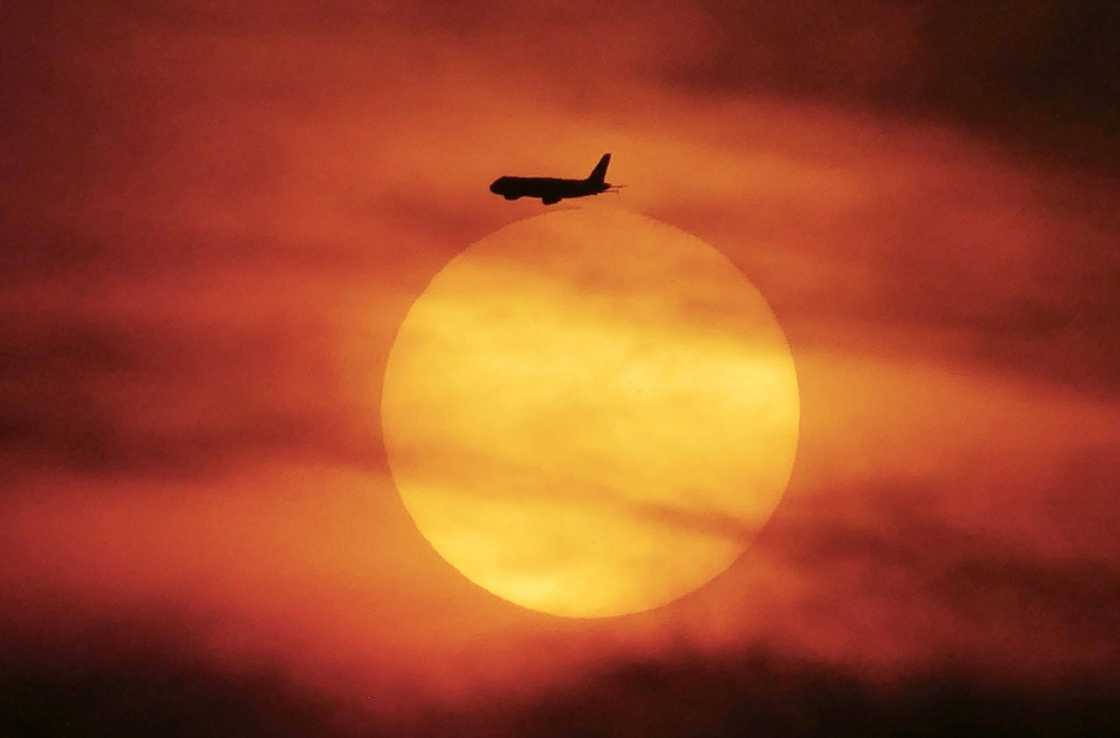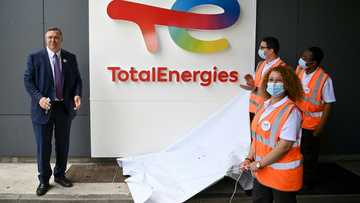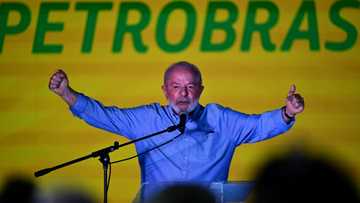European airlines drop vague promises on carbon offsets

Source: AFP
European airlines are starting to become prudent when promoting flight carbon-offset measures, such as reforestation, following courtroom losses and stepped-up pressure by regulators.
Dutch airline KLM in March last year lost a case about greenwashing -- a practice in which companies are regarded as claiming to be more environmentally responsible than they really are.
An Amsterdam court ruled it misled consumers with "vague and general" adverts about efforts to reduce the environmental impact of flying, including painting "an overly rosy picture" about the impact of measures such as adopting sustainable aviation fuel.
In March, a German court banned airline giant Lufthansa from saying in its advertisements that passengers could "compensate" for carbon emissions from flights, finding that the claims were "misleading".
Lufthansa had already received a red card from British regulators over its ads in 2023, as well as from Belgian regulators in prior years.
In 2023, the European consumer rights umbrella group BEUC filed a complaint with the European Commission, accusing European airlines of greenwashing and unfair commercial practices for inflating their green credentials.
A year later, the commission opened a probe, which is still ongoing, into 20 firms over misleading green claims.
BEUC said earlier this year that some airlines have since removed or changed their climate-related marketing claims.
For example, Norwegian Air Shuttle dropped climate claims from its reservation process, while Hungarian low-cost airline Wizz Air stopped offering passengers the possibility of offsetting their CO2 emissions.
"However, these improvements should not hide that greenwashing is still widespread," said BEUC's director general, Agustin Reyna.
Room for improvement
"There is room to change" in airlines' communications, said Diane Vitry, who heads up the aviation section of the NGO Transport & Environment.
She said the ideal would be that ads for flights mention the climate impact they have, similar to the health warnings included on tobacco and alcohol labels.
"I haven't seen a big improvement" from transport companies, said Garance Bazin, an environment researcher who co-authored a Greenpeace report criticising overt greenwashing in airline ads.
She noted, however, that "legal precedents are 'starting' to take hold" and companies were "making less bold statements about certain things that are objectively false".
Airlines were "likely paying more attention" to their public communications, said Laurent Timsit, general delegate at the French aviation sector representative body FNAM.
Air France no longer offers carbon offsets for flights. Instead, it suggests passengers contribute to the purchase of sustainable aviation fuel (SAF) which has reduced emissions.
Air transport accounts for three percent of global carbon emissions, but it plays a bigger role in global warming because aircraft produce other greenhouse gases and contrails.
Net zero goal
The sector has pledged to reach net zero by 2050 in terms of carbon emissions, mainly through SAF use, but also carbon offsets, despite NGOs criticism of them as ineffective.
Timsit, who noted that NGOs had previously pressed for such offsets to be put into French law, expressed disappointment at the BEUC complaint.
Marie Owens Thomsen, vice president in charge of sustainable development at the International Air Transport Association, said that "clearly, what we want is all the levers that we will need for being able to decarbonise by 2050".
Noting that SAF was not yet available in sufficient quantities, while offsets provided certifiable emission reductions, she said that it was counterproductive to be "dogmatic about which tool is better than which".
Carsten Spohr, CEO of Lufthansa, told AFP at a recent conference of the Airlines for Europe lobby group that some of the court cases were going in "an unfortunate direction".
They were "making it more difficult for us to attract our passengers to spend more in order to help the environment", he said.
"In our case, now four to five percent of our passengers are willing to pay more to allow us to fly them with sustainable aviation fuels or other ways of compensation," he said, alluding to his airline's "green" fares.
"So how can that be bad for the environment to attract attention and visibility?" he asked.
Source: AFP





